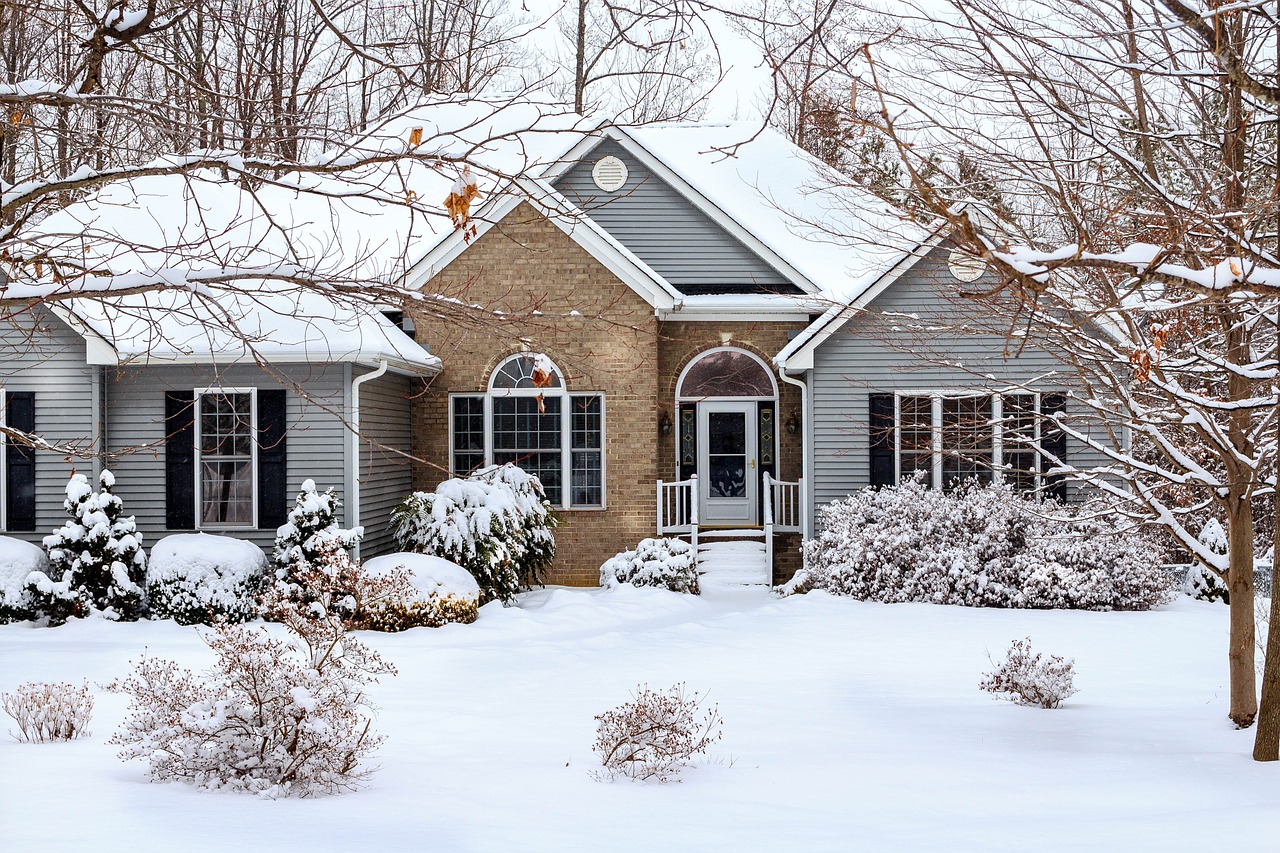Longer nights and falling leaves are the precursor to heating bills and chilly times at home. When you winterize your home now before the snows blow in, it can minimize the impact to your wallet later on. Here, ten easy winterizing tips at a variety of price points...plus a bonus tip:
Free
Here are some simple things you can do that require no financial investment...just a few minutes of your time are all that's required:
- Open the shades. While lowered shades provide a break to summer's heat, raising them lets you take advantage of "solar heating" during winter's sunny days. Let those rays heat your home!
- Turn off your lights. Your parents’ refrain to turn off the lights still applies. Even with more efficient lighting (fluorescent or LED), turning off lights when leaving a room still makes good sense.
- Adjust your hot water heater. Set the temperature on your hot water heat between 110° Fahrenheit and 130° Fahrenheit. A perfect target is 120° Fahrenheit. This simple move saves energy and prevents dangerous scalds.
- Air dry clothes and dishes. Air drying helps to reduce costs and even introduces some beneficial moisture into dry winter air.
Low Cost
If you've got a little money to spend on winterizing, try these tips:
- Install a door sweep. Make sure the gap at the bottom of exterior doors is sealed. A door sweep is the best way to do this, or you can make a fun one by using a necktie stuffed with batting!
- Seal all holes and cracks with caulk. Latex caulking is easy to use and clean up. A little dab will go a long way preventing heat loss. If you have a larger hole and suspect mice may be looking for a warm place to overwinter, stuff the hole with steel wool first, then seal.
- Change filters. If you heat with forced hot air, replace the filter as indicated by the manufacturer. A simple filter may need to be replaced monthly while a more sophisticated pleated filter can go for a longer period of time.
Higher Cost
These winterizing options also provide lasting payback, and may be partially funded after a home energy assessment:
- Add insulation. Insulation is a simple passive addition to homes providing long term benefit. Focus on attic insulation, electrical outlet insulation and hot water tank insulation. Insulating exposed hot water pipes is simple and provides a payback. Insulation can also increase your home's value!
- Install updated thermostats. Thermostats are a key part of your heating system and often go overlooked. Standard manual thermostats depend on human interaction to change settings. Programmable thermostats allow homeowners to add additional information about when people are expected to be home, away, or sleeping. Now the latest "smart thermostats" actually learn your schedule and preferences and anticipate when heat is needed. They also try to expand your comfort zone and slowly change settings over time, encouraging energy consumption.Programmable thermostats allowed homeowners to add additional information about when people are expected to be home, away, or sleeping. The latest "smart thermostats" actually learn your schedule and preferences, anticipating when heat is needed. They also try to expand your comfort zone by slowly changing settings over time, encouraging energy conservation.
- Update the furnace. While a new furnace is a substantial cost, if you're heating with a furnace dating from the Dark Ages, you’ll be surprised by how much more efficient your home heating system can be, providing you with ongoing savings.
Now for our bonus tip: A home energy assessment is a great way to uncover improvement opportunities for winterizing your home. The assessment will give you a top-to-bottom review of your abode and include concrete tips, many of which you can apply immediately to realize cost savings this winter. One that we often discuss in this blog is the no-cost Mass Save® Home Energy Assessment. What we especially like about this program is that Mass Save® provides the opportunity to apply for 0% financing through its Mass Save® Heat Loan program. This is available for qualified energy efficient home improvements, such as adding high efficiency heating or water systems, improving your home’s insulation, and replacing windows. Hanscom FCU is a participating statewide lender for the Mass Save® Heat Loan program. To learn more about this program, what it covers and how to qualify so you can winterize your home wisely and economically, visit our Mass Save Loan Program page.
Keep in mind that home heating costs are projected to continue at high levels for the next few years, so any investment you make now will pay off nicely over time.
So go forth and winterize your home with the confidence you're making a sound financial decision!




.jpg)









Comment